Agenda
8:15 – 9:30 a.m.
Understanding Physician Wellness: Data, Drivers, and Solutions for Physicians in 2024
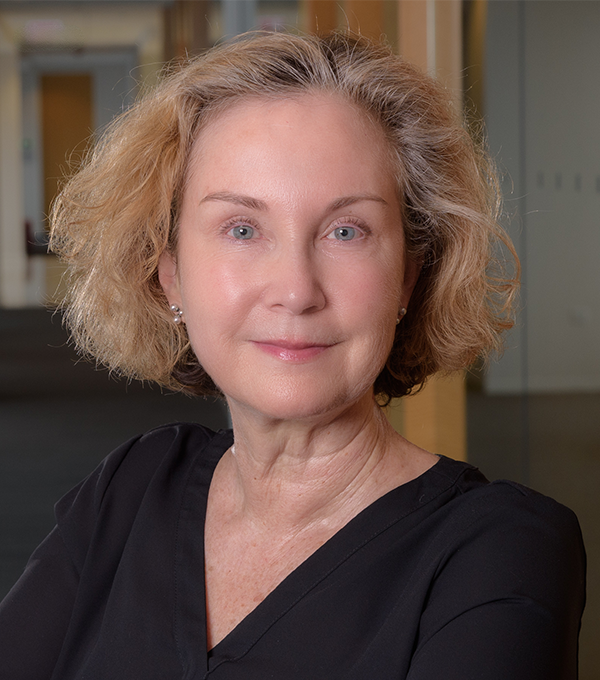 Jane F. Fogg, MD, MPH
Jane F. Fogg, MD, MPH
Senior Physician Advisor, American Medical Association; Lecturer on Global Health and Social Medicine, Harvard Medical School; Affiliate Faculty, Center for Primary Care, Harvard Medical School
Dr. Jane Fogg is a physician leader and executive with broad experience leading health care delivery, focusing on primary care, systems redesign, and value-based delivery models. She recently joined the American Medical Association as a Senior Physician Advisor for the division of Professional Satisfaction & Practice Sustainability. Prior to this, she was the Executive Chair of Internal Medicine Family Medicine at Atrius Health, an innovative value-based healthcare leader in Massachusetts, and a member of Optum. She was responsible for the care delivery and outcomes of a practice with 350 physicians and advanced practice clinicians caring for 400,000 patients. She implemented advanced primary care redesign for reliable systems that are team-based, patient-centered, innovative, and return joy to the practice of medicine. Dr. Fogg started her career in 1996 as the Director of Adult Medicine & Residency Training at The Dimock Center, a FQHC, in Roxbury. In 2004, Dr. Fogg joined the Beth Israel Deaconess Medical Center system and founded a successful primary care practice in Needham, MA as their Medical Director. She went on to assume system wide leadership roles designing and implemented care models to address the transition from volume to value at both local and system levels until 2016. Dr. Fogg is a Lecturer at Harvard Medical School, Affiliate Faculty at the Center for Primary Care, and speaks internationally and locally on value-based care delivery, innovation in health care, physician wellbeing, and in basket reduction.
9:35 a.m. – 10:20 a.m. 2 Breakout Session Options
Organizational Compassion: Healing Suffering and Promoting Wellbeing
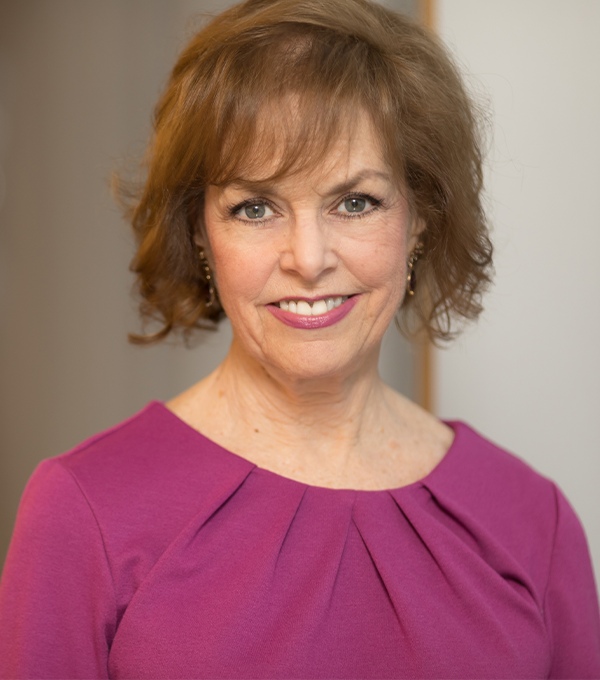 Beth A. Lown, MD, FACH
Beth A. Lown, MD, FACH
Chief Medical Officer, The Schwartz Center for Compassionate Healthcare
Dr. Beth Lown is the Chief Medical Officer of the Schwartz Center for Compassionate Healthcare, a non-profit organization dedicated to sustaining compassion through its programs, education, and advocacy so that all who seek and provide healthcare experience compassion.
As Chief Medical Officer, Dr. Lown leads the Schwartz Center’s thought leadership and content development. With her team and collaborators, she creates, implements, improves, and evaluates new initiatives, courses and programs, convenes conferences, and does research on compassion-related topics and measures. She works with national organizations to advocate for resources to support the mental health and wellbeing of the healthcare workforce. She consults and speaks locally, nationally, and internationally about compassion, wellbeing, social support, and organizational and systems change. She has taught communication and relational skills to health professionals across the continuum of learning for decades.
Her current focus is on supporting healthcare leaders by implementing actionable frameworks, programs and metrics to enable leadership teams to foster and sustain cultures of compassion and wellbeing in their organizations.
In addition to her work with the Schwartz Center, Dr. Lown is an affiliate faculty member at Mount Auburn Hospital, Cambridge, MA, a teaching hospital of Harvard Medical School.
The Truth About Burnout: How Organizations Contribute to Individual Burnout
In this workshop, attendees will look at the six ways that organizations contribute to individual burnout according to Christina Maslach (inventor of the Maslach Burnout Inventory) and together brainstorm ways that we can buffer ourselves and perhaps even work to improve the affect they have on our job.
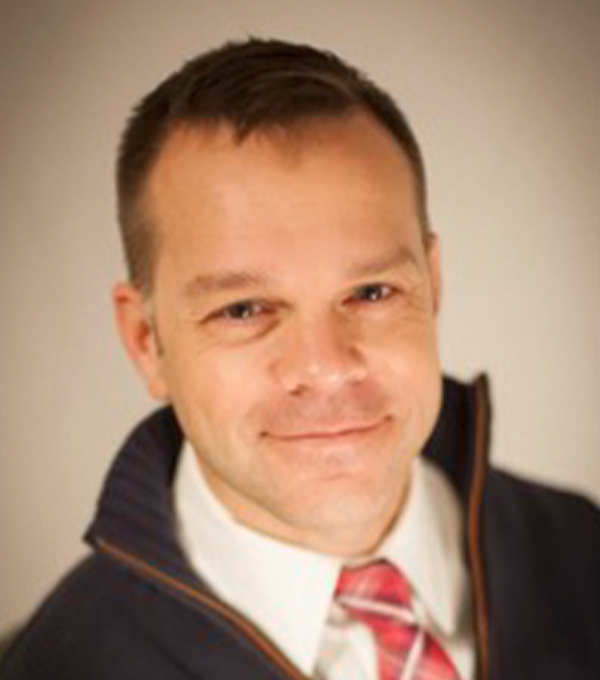 Robert Leschke, MD, CPCC
Robert Leschke, MD, CPCC
Dr. Leschke is a Board Certified Emergency Medicine Physician with almost 30 years of clinical experience. He is also a CTI trained Certified Professional Co-Active Life Coach. His areas of expertise include conflict management, values-driven living, career development, and new ways to think about Leadership. Through individual peer coaching, coursework, workshops, and lectures, he works with health care providers and organizations throughout the country to create environments where people can thrive. He's also just a nice guy. Find him at leschkecoaching.com.
10:20 – 10:40 a.m.
Break
10:40 a.m. – 12:15 p.m. 2 Breakout Session Options
Jump in, Let go: Improvise Your Way to Resilience
In this workshop, participants will spend time actively engaged in improv exercises followed by group debriefs. Each exercise in this workshop will be geared towards a specific skill domain, and each debrief will move the participants toward deeper learning and new insights. In debrief, learners are encouraged to share their insights and how they plan to apply these lessons and skills to their personal contexts. By participating in this workshop, learners are engaged both physically and mentally in exercises which promote flexibility, responsiveness to change, careful focus, attention to the present moment, and collaboration with others.
Mary Fredrickson, MD
Hospitalist, Healthpartners, Physician Advisor, Regions Hospital, Assistant Professor, University of Minnesota Medical School, Hospital Medicine Pathway Lead, University of Minnesota Internal Medicine Residency Program
Practice in Patience and Focus - Observational Drawing in Graphite
Participants will engage in a step-by-step process of observational drawing by learning an intense method of seeing, abstracting, and proportional judgement of form to produce a representational drawing of a still-life object in graphite. In addition, the workshop will introduce the visual language of line, concept of space, and methods for rendering value.
Observational drawing, a fundamental skill in the visual arts, offers many benefits that extend beyond the act of creating itself. This technique requires a calm and sustained attention to detail resulting in a meditative state of mind which can serve as a stress-relief technique offering a valuable break from the demands of daily life. Participants will engage in a step-by-step process of observational drawing by learning an intense method of seeing, abstracting, and proportional judgement of form to produce a representational drawing of a still-life object in graphite. This meticulous process promotes an appreciation in the value of a composed, focused effort which can be applied throughout one's personal and professional life.
Some of the advantages of engaging in observational drawing are an enhanced perception, sharpening one's ability to observe and perceive details in the surrounding environment. In addition, this breakout session will introduce the visual language of line, concept of space, and methods for rendering value.
Session moderated by Cynthia M. Hart, MD FAAFP
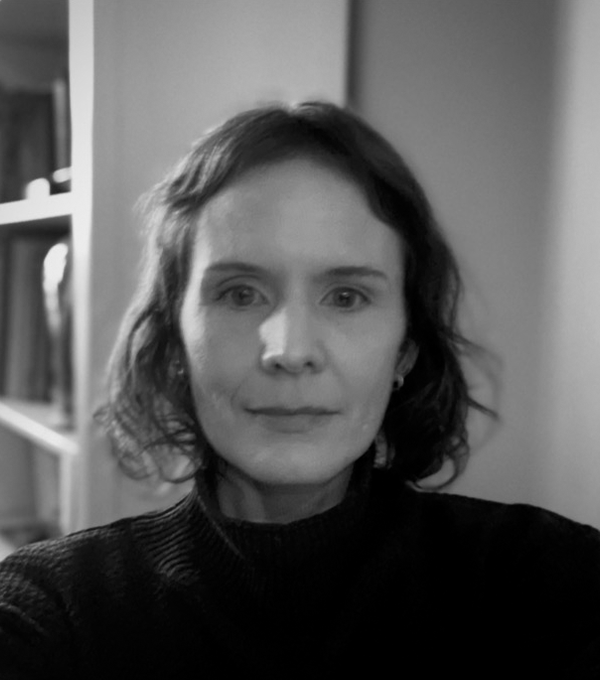 Catherine Haverkamp
Catherine Haverkamp
Artist, Fine Art Instructor in Observational Techniques
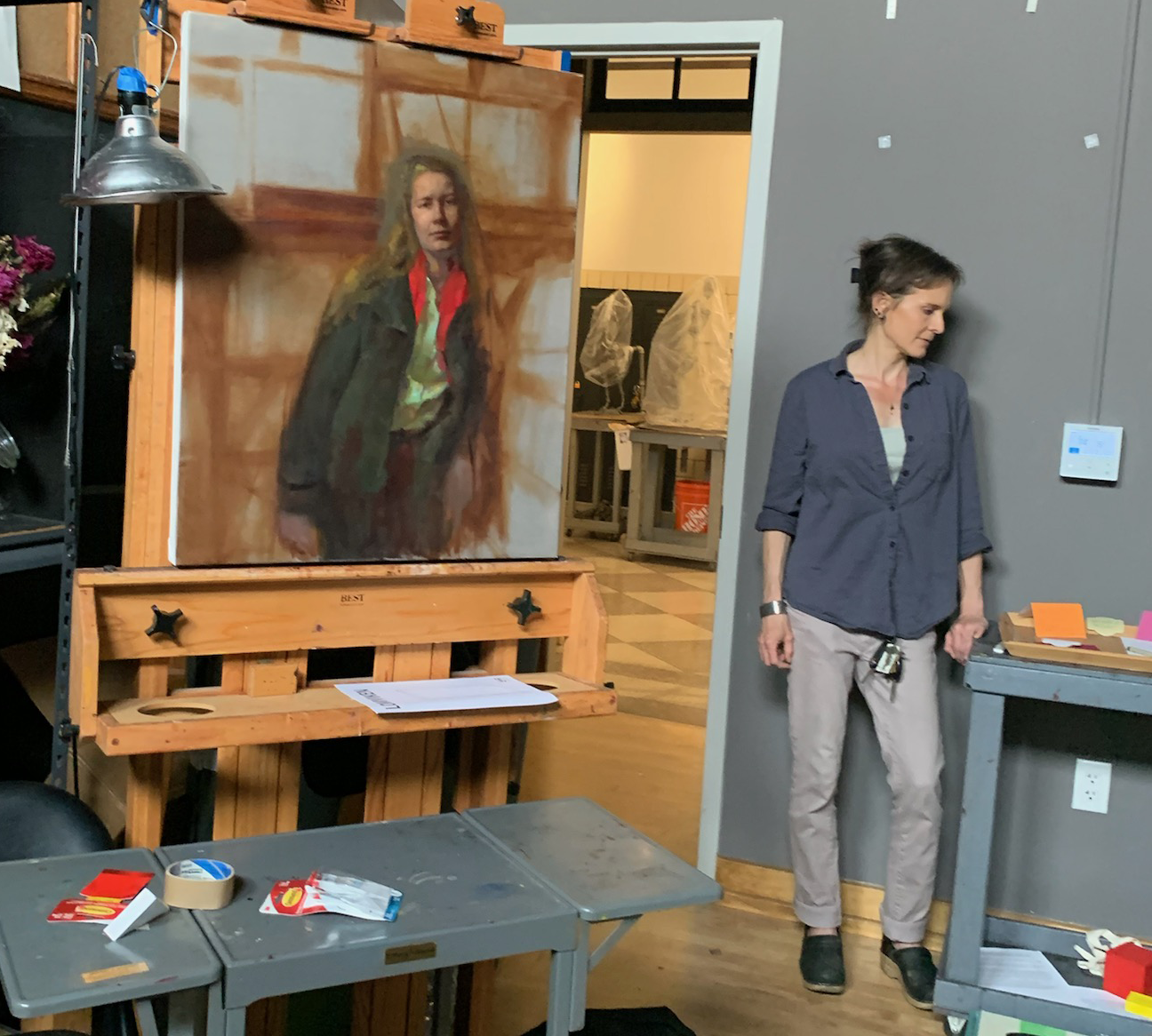
Catherine “Kat” Haverkamp is a Philadelphia based realist artist. Catherine studied at Cleveland Institute of Art, Memphis College of Art, Studio Incamminati in Philadelphia, PA. and Rowan University in N.J. Catherine is currently pursuing her Masters of Fine Art at the Pennsylvania Academy of the Fine Arts in Philadelphia, PA. and is a fellow at Studio Incamminati. Catherine’s work has been recognized in many national and international competitions such as the yearly International Portrait Competition hosted by the Portrait Society of America and her work has traveled the world in the Art Renewal Centers’ International Salon Competition. Her paintings have been featured in multiple publications, such as International Artist magazine and Fine Art Connoisseur and is currently exhibiting in Philadelphia's Arch Enemy gallery and Rutledge st. Gallery in Camden, South Carolina. In addition, Catherine teaches Highschool and middle school programs at the PAFA Museum, produces gallery work and takes commissions for portraits, still-life, floral and pets.
12:15 – 1:30 p.m.
Lunch & WisMed Annual Business Meeting
1:30 – 2:15 p.m. 2 Breakout Session Options
Navigating the Marble Big-Top: How to Be a More Effective Advocate for Sound Health Care Policy in the Capitol
Mark Grapentine, JD
Chief Policy and Advocacy Officer, Wisconsin Medical Society
As Chief Policy and Advocacy Officer, Mark is responsible for representing and protecting the interests of more than 10,000 Wisconsin Medical Society members at the state and federal level. Mark is in his second stint with the Society, rejoining the organization in September 2020 after a year at the Wisconsin Hospital Association as their Vice President of Communications. His first period with the Society was from 2003 through August 2019, eventually as the Senior Vice President of Government Relations.
Before joining the Society in 2003, Mark was chief of staff to former State Senator Peggy Rosenzweig (2001-02), Policy Advisor to former Governor Tommy G. Thompson (1998-2001), and legislative assistant to former State Assembly Representative Scott Walker (1997-98). Mark is a 1997 graduate of the University of Wisconsin Law School. He graduated from the University of Wisconsin in 1990, majoring in journalism and political science. In between degrees Mark was a television sports anchor and reporter at WKOW-TV, the ABC affiliate in Madison.
Sharing Purpose and Passion to Beat Burnout
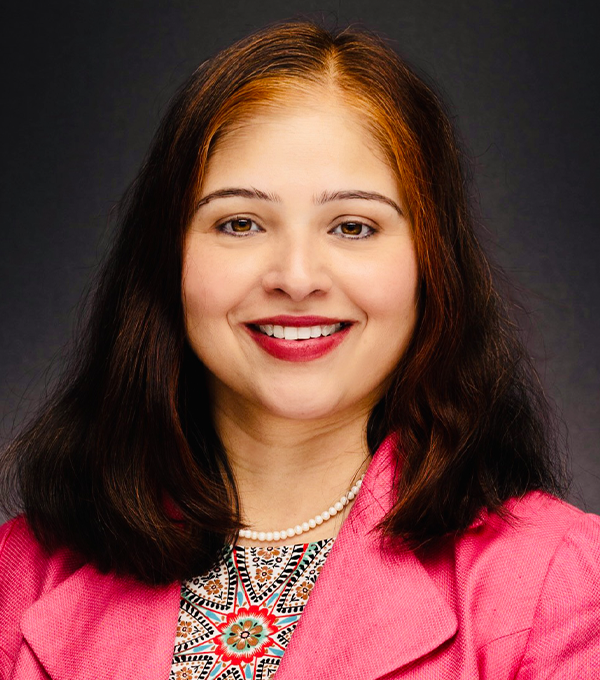 Sonal Chandratre, MD, CPE, CPHQ
Sonal Chandratre, MD, CPE, CPHQ
Chief Medical Officer, Ascension Saint Elizabeth Hospital and Ascension Calumet Hospital
Sonal Chandratre, MD, CPE, CPHQ is the Chief Medical Officer at Ascension St Elizabeth Hospital and Ascension Calumet Hospital in Appleton, WI. She is a Pediatric Endocrinologist by background. She is an Assistant Professor of Pediatrics and Pediatric Endocrinology and has a strong leadership background in healthcare leadership and medical education. She has published several papers in peer-reviewed journals on pediatric endocrinology, medical education and healthcare and has also authored 2 books titled “How To Get Published Without Doing Research” and “Kids, C'mon Let's Get Healthy! A complete kid’s guide to a healthy lifestyle.” She is passionate about a wide variety of health and medical education-related topics including physician wellness. She has represented physicians in panel discussions, newspapers, radio and television. She delivers wellness workshops to healthcare professionals at various national conferences on physician wellness, wellness in women in healthcare, and wellness for physician leaders.
2:20 – 3:05 p.m. 2 Breakout Session Options
Tangled Web, Safety Net, or Both? Physician Wellness and the Law
This breakout session will provide learners with an understanding of how employment, licensure, privileges, and other aspects of their careers fit together and offer ideas for how they can proactively address impairment or wellness for themselves and their colleagues in ways that promote wellbeing and mitigate risk. Practical tips for what to do (and not do) will be shared.
 Angela Rust, JD
Angela Rust, JD
Health Law Attorney, von Briesen & Roper, s.c.
Addressing the Upstream Determinants of Physician and Trainee Burnout
Like social determinants of health that affect the ability for physicians and trainees to care for their patients given their unique, intersectional needs, burnout during medical training and beyond also shares similar determinants. This session will focus on the upstream determinants related to burnout through small and large interactive group discussions. We hope this will generate thoughtful conversations and brainstorming of how to address these determinants in order to prevent burnout.
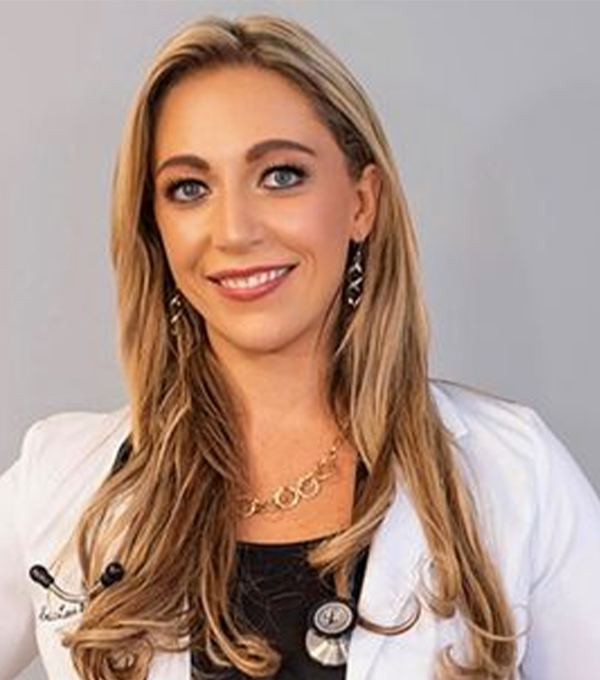 Erica Larson, DO
Erica Larson, DO
Founder and Lead Psychiatrist, Core Choice, LaCrosse, WI
Dr. Erica Larson is a distinguished psychiatrist who is double board certified in both general psychiatry and child and adolescent psychiatry by the American Board of Neurology and Psychiatry. With a passion for helping individuals of all ages achieve optimal mental health, Dr. Larson has dedicated years of study and practice to becoming an expert in the field.
Dr. Larson completed her medical school, psychiatry residency, and child and adolescent psychiatry fellowship at Michigan State University, where she gained extensive knowledge and hands-on experience in diagnosing and treating various psychiatric conditions.
Throughout her career, Dr. Larson has been deeply committed to making a positive impact on the mental health landscape. Dr. Larson has been actively involved in developing wellness initiatives and treatment programs for healthcare workers, acknowledging the critical role healthcare professionals play in society and the toll their work can take on their mental well-being.
Dr. Larson is widely recognized for her contributions to the field and holds executive positions with the Wisconsin Psychiatric Association and Wisconsin Council of Child and Adolescent Psychiatry. She also serves as a board member for the Wisconsin Medical Society and the La Crosse County Medical Society, where she actively participates in shaping policies and advocating for quality medical care. In addition, Dr. Larson serves as the young physician representative for Wisconsin in the American Medical Association, ensuring that the perspectives and needs of younger medical professionals are well-represented.
Dr. Larson is dedicated to transforming lives by promoting mental health and optimizing functionality. With her expertise, compassion, and commitment to comprehensive care, she is a trusted ally in the journey toward improved mental well-being.
 Andrew Norton
Andrew Norton
Rising 4th year MD/PhD student at UW SMPH
Andrew Norton is a rising 4th year MD/PhD student at UW SMPH, in the Path of Distinction in Medical Education, and in Adam Bailey MD, PhD’s lab with plans to go into Infectious Disease. He is currently WMS-MSS UW SMPH Advocacy Chair, WMS Student Rep on the Policy Review Committee, WMS Student Rep on the Annual Planning Committee, AMA-MSS Region 2 Policy Chair, AMA-MSS Region 2 Region Delegate Co-Chair, AMA Medical Student Rep for Wisconsin, and has served in many different WMS, WMS-MSS, and AMA-MSS over the past few years. Andrew is passionate about all levels of medical education, LGBTQ+ rights, reproductive rights, infectious disease education and advocacy, resolution and policy writing, and much more. He is excited to have the opportunity to be a presenter this year and proudly serves as a member of the WMS-MSS and WMS.
3:10 – 3:25 p.m.
Break
3:30 – 4:30 p.m.
A Brighter Future for Healthcare Worker Wellbeing: Leading to Accelerate Change
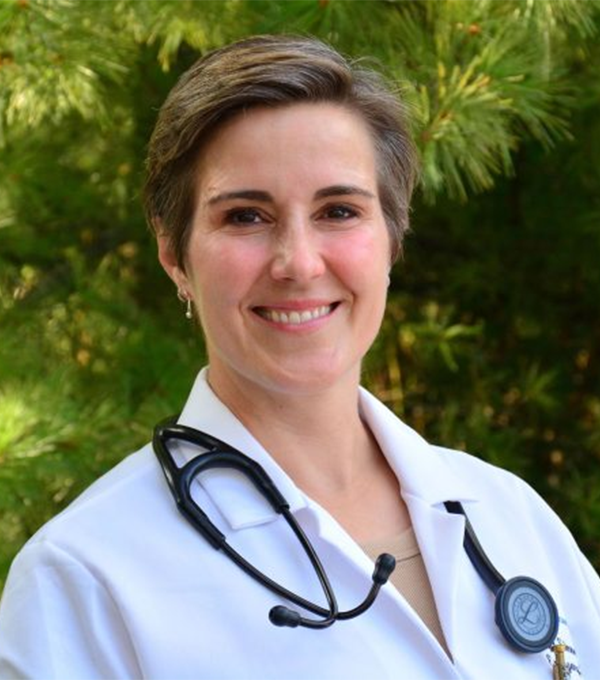 Stefanie Simmons, MD, FACEP
Stefanie Simmons, MD, FACEP
Chief Medical Officer, Dr. Lorna Breen Heroes’ Foundation
Stefanie Simmons, MD is the Chief Medical Officer at the Dr. Lorna Breen Heroes’ Foundation and a board certified emergency medicine physician and health care executive. Stefanie served as the Vice President of clinician engagement for Envision Physician Services for over 7 years, serving over 26,000 physicians and advance practice providers with a focus on professional well-being, including translational research and programs designed to bring well-being best practices to clinical environments. She served as lead clinical faculty for the Clinician Experience Project Wellbeing program. Stefanie earned her Doctor of Medicine degree from University of Michigan and completed residency training at the University of Michigan/St. Joseph Mercy Medical Center emergency medicine residency.